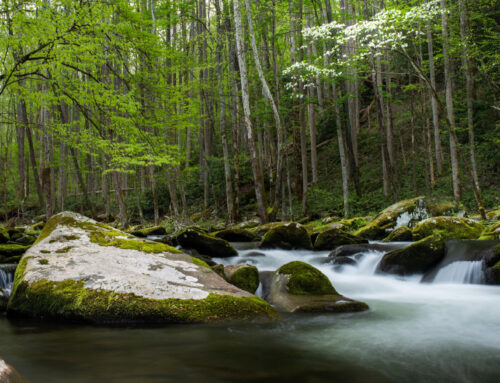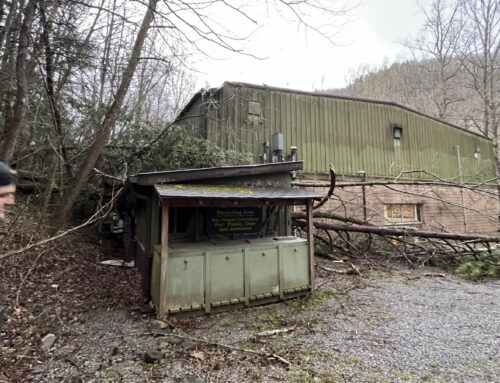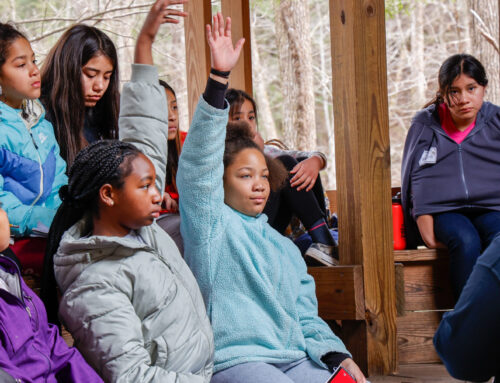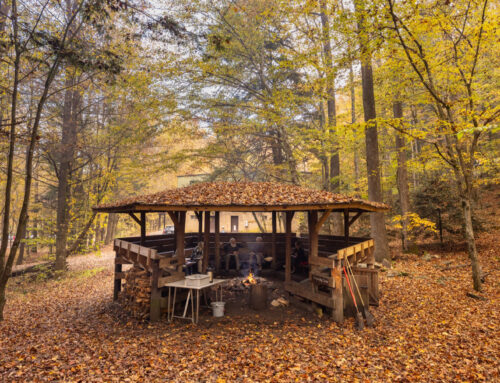Written by Elizabeth Davis, Field Programs Specialist. Originally published in 2015, revised in 2021.
“Always in big woods when you leave familiar ground and step off alone into a new place, there will be, along with the feelings of curiosity and excitement, a little nagging of dread. It is the ancient fear of the unknown, and it is your first bond with the wilderness you are going into. You are undertaking the first experience, not of the place, but of yourself in that place. It is an experience of our essential loneliness, for nobody can discover the world for anybody else. It is only after we have discovered it for ourselves that it becomes a common ground and a common bond, and we cease to be alone.
And the world cannot be discovered by a journey of miles, no matter how long, but only by a spiritual journey, a journey of one inch, very arduous and humbling and joyful, by which we arrive at the ground at our feet, and learn to be at home.”
-Wendell Berry, The Unforeseen Wilderness: Kentucky’s Red River Gorge
“But why can’t I solo hike with a friend?”
I’ve heard this question many times; it stems from our innate need for human connection and shared experience, but it also speaks to a deep-seated fear: in a culture that shies away from solitude due to “fear of missing out,” many of us have forgotten how to be at home in the woods and at home with ourselves.
Solo hikes are a Tremont tradition that remind us how to be at home. At intervals of about two minutes, each person departs from the starting point, headed down the same trail to the same destination. A Teacher Naturalist leads, stopping when they reach their chosen endpoint, and the participants wander in one by one, until the last person, a teacher, arrives. In this way, each person experiences the same trail in solitude, but with a safety net of a friend within easy reach. Over the course of Tremont’s history, hundreds of thousands of 5th-graders have taken solo hikes in the National Park.
As many of us have learned this year, learning to be at home sometimes requires us to show up for challenging experiences, to find joy amidst fear and discomfort.
Each week brings a predictable flurry of questions: “What if I see a bear? What about a snake? Where should I go to the bathroom? What if I catch up to someone else?” At the root of these questions lies the real, unasked, question, “What will happen to me when I’m on my own?”
I can’t answer that question for them. I can tell them only that singular experiences like this should be savored.
Later, at the end of the solo hike, I can read it in each one of their faces as they trickle in: confidence, awe, excitement. First one, then another, then another, then a group of two, who despite the directions, met up “just at the very end,” another, another, until at last everyone is gathered again. Experiences are enthusiastically shared and compared: “It’s so peaceful,” “I heard birds,” “I saw a bear (or maybe a big squirrel…),” “Yay! People!,” “I didn’t even miss my phone,” “I was bored,” “Did you see that big tree?” “It was so… quiet,” “Can we do it again?” or simply, “Wow.”
It’s not all roses. As many of us have learned this year, learning to be at home sometimes requires us to show up for challenging experiences, to find joy amidst fear and discomfort. When I hiked the Appalachian Trail solo from Maine to Georgia in the fall of 2012, I often found myself walking the fickle line between solitude and loneliness, my mood changing seemingly with each footfall—one foot in unbounded freedom and joy of solitude, the other tired, cold, hungry, miserable, and lonely.
When we experience solitude outdoors, we develop the fortitude to face the unknown, and, perhaps most importantly, we feel intimately our own belonging within the world.
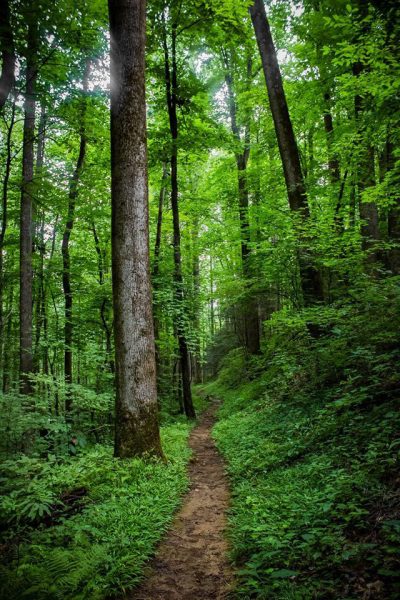
Photo by Kristi Parsons
Leath Tonino summed it up well in his recent piece about a month-long solo stint in Montana when he said, “The point is that this sojourn has been stirring and gorgeous and remarkable and unique, yet also bland and boring, difficult and uncomfortable. Both. The whole kit and caboodle. And, and, and, and, and.”
That it’s a mixed bag is what makes solo hiking so powerful: it builds resilience and through our encounter with our “essential loneliness,” reintroduces us to ourselves.
When we experience solitude outdoors, we develop the fortitude to face the unknown, and, perhaps most importantly, we feel intimately our own belonging within the world.
And that is powerful knowledge, especially if you’re in 5th grade.
If you venture out on any solo excursions in the woods, make sure you let a responsible friend or family member know where you are going and when you’ll be back!



